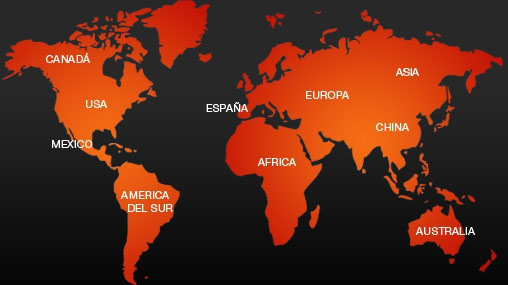- Inicio Acerca de RM Minerales
- Galería de fotos Blog RM Contacto
- Microscopia e instrumentos Pedidos Aviso legal
Copyright 2010-2026
www.rosellminerals.com



Muy interesante combinación formada por un nódulo de tinticita con algún pequeño agregado de calcioferrita. La calcioferrita muestra agregados globulares de color verde oliva, con cristales radiados, incluidos en matriz de tinticita. Estos especímenes han sido analizados por SEM-EDS y XRD y enviaremos todos los detalles al comprador. De esta clásica mina catalana.
Este es un clásico ejemplar de cinabrio fisural, en el que podemos observar bajo aumento pequeños cristales de cinabrio aplanados, con caras estriadas, sobre una drusa de cristales de cuarzo. La transparencia hace que sea muy brillante bajo la luz.
En este ejemplar podemos ver un grupo de cristales de fluorita azulada parcialmente recubiertos por una drusa de cristales de cuarzo diminutos pero muy brillantes.
Ejemplar de muy buen tamaño de fluorita de esta clásica mina catalana. Sobre la antigua matriz de granodiorita anaranjada se disponen diversos grupos de cristales, alguno de ellos aislados, con formas octaédricas. Presentan un brillo semi mate y un color verde uniforme. Muy fluorescente bajo la luz UV-OC. Los ejemplares de fluorita de esta cantera son muy apreciados por los coleccionistas.
Las minas de fluorita del Matagalls se hallan en el macizo del Montseny. Son bien conocidas por la fluorita, pero también por los cristales de cuarzo de la variedad amatista como los que mostramos en este ejemplar. Sobre una matriz tapizada por cristales de fluorita de tono verde amarillento se disponen numerosos cristales de amatista, parcialmente recubiertos por pequeños cristales de calcita muy brillantes.
Los ejemplares de barita de esta clásica mina catalana son poco habituales en el mercado. En esta pieza podemos observar un nutrido grupo de cristales interpenetrados, destacando algunos de ellos con las caras bien visibles. Presentan un color ligeramente amarillento y son traslúcidos. Este ejemplar procede de la colección Joan Astor.
La Corta Brunita, en Murcia, es un clásico de la minería española. Este ejemplar nos muestra diversos agregados globulares de cronstedtita, formados por pequeños cristales con las caras terminales triangulares. Se disponen sobre una matriz con smithsonita.
Cerca de la costa de la ciudad de Barcelona se halla este promontorio histórico y geológicamente muy interesante como es la montaña de Montjuïc. El ejemplar que proponemos es un xilópalo en el que podemos observar estructuras de la madera original. Estos ejemplares son ya tan históricos como la montaña de donde salieron...
La mina de las Cruces, al noroeste de Sevilla, es un ejemplo de explotación minera de la Faja Pirítica Ibérica. Pero hay que decir que los minerales que en ella se han hallado no son para nada habituales en otros yacimientos de este sistema geológico. De esta mina destacan excepcionales ejemplares de chalcocita y djurleíta. Este es un magnífico ejemplar de esta última especie, la djurleíta (sulfuro de cobre). Podemos observar grupos formados por cristales y idiomórficos con formas octaédricas y un lustre gris metálico. Se disponen sobre una matriz formada por otros sulfuros de cobre y hierro. Cómo es habitual en estos ejemplares y ya se ha indicado en estudios anteriores estos cristales pueden corresponder a fases de djurleíta/chalcocita. En este caso hemos realizado una difracción de rayos X que confirma la djurleíta. Una pieza excepcional para los coleccionistas de minerales "grises" (sic), dificilísima de encontrar hoy día.
Los ejemplares de bavenita de Cadalso de los Vidrios son un clásico de la mineralogía española y ya hacía bastante tiempo que no se veían piezas de este aluminosilicato de berilio y calcio. Podemos observar sobre una matriz con cuarzo, albita y microclina numerosos agregados de cristales tabulares, transparentes, muy brillantes y que forman rosetas. Se acompañan en ocasiones de pequeños cristales de pirita y/o laumontita.
Los ejemplares de bavenita de Cadalso de los Vidrios son un clásico de la mineralogía española y ya hacía bastante tiempo que no se veían piezas de este aluminosilicato de berilio y calcio. Podemos observar sobre una matriz con cuarzo, albita y microclina numerosos agregados de cristales tabulares, transparentes, muy brillantes y que forman rosetas. Se acompañan en ocasiones de pequeños cristales de pirita y/o laumontita.
Los ejemplares de bavenita de Cadalso de los Vidrios son un clásico de la mineralogía española y ya hacía bastante tiempo que no se veían piezas de este aluminosilicato de berilio y calcio. Podemos observar sobre una matriz con cuarzo, albita y microclina numerosos agregados de cristales tabulares, transparentes, muy brillantes y que forman rosetas. Se acompañan en ocasiones de pequeños cristales de pirita y/o laumontita.
La willemita de Sant Fost se presenta en pequeños cristales de hábito prismático pseudohexagonal (maclas), con las caras estriadas. Todos ellos son de tamaño submilimétrico y forman drusas de cristales de brillo resinoso o adamantino, con colores que van del marrón oscuro al amarillo miel, o pueden aparecer incoloros y transparentes. En Sant Fost la willemita aparece asociada a una veta de esfalerita junto con silicatos (cuarzos y arcillas), calcita, fluorita y barita. Fluorescente bajo UV de onda corta. Localidad inusual para la especie.
Esta es una de las pocas muestras obtenidas en nuestros últimos estudios en esta cantera. Observamos unos cristales laminares, tipo mica, con brillo nacarado y formas hexagonales. Los resultados de las diferentes técnicas analíticas indicaron que se trataba de surita (SEM-EDS, EPMA, XRD, Raman). Se acompaña de cerusita, fluorita (violeta), barita y galena.
La surita es una especie muy rara cuya estructura se basa en un apilamiento de capas tipo cerusita, intercaladas con una capa 2:1 de esmectita. Can Rovira es la segunda localidad de Europa y una de las pocas localidades a nivel mundial para la especie.
La fehrita es una nueva especie encontrada recientemente en Almería (España). Hace unos años (2012) identificamos esta especie en la mina de Les Ferreres (Camprodon) pero lamentablemente no disponíamos de suficiente muestra para terminar los estudios de determinación y estructura. Recientemente encontramos algunas muestras más y la caracterización se realizó en base a los resultados obtenidos de la aplicación de diversas técnicas analíticas: SEM-EDS, Raman y XRD. La mina de Les Ferreres es la segunda localidad a nivel mundial para la especie. Enviaremos los resultados al comprador.
En esta mina catalana, la fehrita se presenta como cristales tabulares a fibrosos alargados alargados, de un delicado tono verde azulado, con terminaciones fibrosas. Suele acompañarse de devillina (azul) y brochantita (verde). Es el análogo de magnesio de la ktenasita.
La fehrita es una nueva especie encontrada recientemente en Almería (España). Hace unos años (2012) identificamos esta especie en la mina de Les Ferreres (Camprodon) pero lamentablemente no disponíamos de suficiente muestra para terminar los estudios de determinación y estructura. Recientemente encontramos algunas muestras más y la caracterización se realizó en base a los resultados obtenidos de la aplicación de diversas técnicas analíticas: SEM-EDS, Raman y XRD. La mina de Les Ferreres es la segunda localidad a nivel mundial para la especie. Enviaremos los resultados al comprador.
En esta mina catalana, la fehrita se presenta como cristales tabulares a fibrosos alargados alargados, de un delicado tono verde azulado, con terminaciones fibrosas. Suele acompañarse de devillina (azul) y brochantita (verde). Es el análogo de magnesio de la ktenasita.
Aunque se trata de un ejemplar masivo, podemos ver la pirrotita con brillos bronce con inclusiones mecánicas de magnetita negra. No es una especie muy común para el yacimiento. Procede de la colecció Astor y para coleccionistas de la tierra...
Un ejemplar de esta clásica localidad malagueña donde aparecieron grupos de cristales de pirita totalmente substituidos por goethita (limonita).
Excelente ejemplar, con buen tamaño, de granatita con cristales de epidota, sobre los que destacan agregados fibrosos de color verde oliva de uralita. Lo más destacable son diversos cristales bien formados de scheelita, una especie difícil de encontrar en la localidad, muy fluorescente bajo UV de onda corta. Procede de la colección Manchion y fue adquirida a Joan Viñals en 1990.
Grupo de cristales cúbicos de fluorita, brillantes, transparentes y de un color amarillo con zonación. Fluorescente bajo la luz UV de onda larga, con una interesante zonación geométrica. Salpicada de pequeños cristales de pirita, con romboedros de calcita. De esta mina clásica asturiana.
Estos ejemplares de celestina son un clásico de la mineralogía catalana. Se encontraron hace décadas en fisuras en las margas carbonáticas de Els Esbornacs (palabra catalana que significa grietas producidas por desprendimientos), en la Plana de Vic. Se presentan como cristales prismáticos ortorrómbicos, transparentes a translúcidos, brillantes y con un color azul grisáceo muy característico.
Estos ejemplares de celestina son un clásico de la mineralogía catalana. Se encontraron hace décadas en fisuras en las margas carbonáticas de Els Esbornacs (palabra catalana que significa grietas producidas por desprendimientos), en la Plana de Vic. Se presentan como cristales prismáticos ortorrómbicos, transparentes a translúcidos, brillantes y con un color azul grisáceo muy característico.
Estos ejemplares de celestina son un clásico de la mineralogía catalana. Se encontraron hace décadas en fisuras en las margas carbonáticas de Els Esbornacs (palabra catalana que significa grietas producidas por desprendimientos), en la Plana de Vic. Se presentan como cristales prismáticos ortorrómbicos, transparentes a translúcidos, brillantes y con un color azul grisáceo muy característico.
Estos ejemplares de celestina son un clásico de la mineralogía catalana. Se encontraron hace décadas en fisuras en las margas carbonáticas de Els Esbornacs (palabra catalana que significa grietas producidas por desprendimientos), en la Plana de Vic. Se presentan como cristales prismáticos ortorrómbicos, transparentes a translúcidos, brillantes y con un color azul grisáceo muy característico.
Ejemplar muy interesante de esta antigua mina romana situada entre Cármenes y Villamanín (León, España), que posteriormente fue explotada para el cobre hasta finales del siglo XX. Se trata de agregados botriodales de crisocola que substituyen a tirolita. Una rareza de esta mina leonesa.
